CLEO COVID-19 KAP Community Study – Press Release
The COVID-19 pandemic has presented unique, unprecedented challenges for national healthcare systems. The faltering global response - characterized by a lack of preparedness among health care institutions, workers and the wider community - has underscored the importance
of investing in public health research. However, it has also provided a unique opportunity for countries to diagnose and treat gaps within their own capacity for disease prevention.
Like other countries, Greece has turned to urgent measures such as social distancing, quarantining, travel restrictions and border closures to rapidly halt transmission, reduce the risk of illness and protect healthcare systems from overfilling. Public misconceptions about transmissible diseases play a large part in adherence to these measures, and in the case of COVID, may have prevented the most effective response to the pandemic.
With this knowledge in mind, the proposed study aimed to explore knowledge and perceptions held across the Greek community about COVID-19, and whether these attitudes might be tied to changes in behaviors regarding other prevention practices (e.g. vaccination). The results of the study could be used to guide qualitative studies such as selected focus groups within the community, to more deeply examine the underlying motives for behavior change in relation to the uptake of preventative health practices. Ultimately, the goal of this exploration is to improve both individual and collective preparedness for future epidemic waves.
The study
This telephone survey study is one of the first studies examining the knowledge, attitudes, and practices (KAP) regarding COVID-19 in the Greek general population, as well as the first to identify core areas of concern for optimal community intervention. Participants in the study were surveyed by telephone on their KAP related to COVID-19. Participants ranged from 18 to 90 years old, and a third of respondents reported that they belonged to a vulnerable group.
Knowledge
Participants were asked to respond to COVID-19 knowledge items as either yes or no. Higher scores indicated better knowledge of COVID-19. The majority of participants named that they use media as their primary source of information about the pandemic, which suggests media as a channel to influence KAP and spark behavior change. According to analysis, women and those above 24 were more likely to know the 5 most common COVID-19 related symptoms. Handwashing and safe distancing were the most popular prevention methods among those surveyed (Fig. 1).
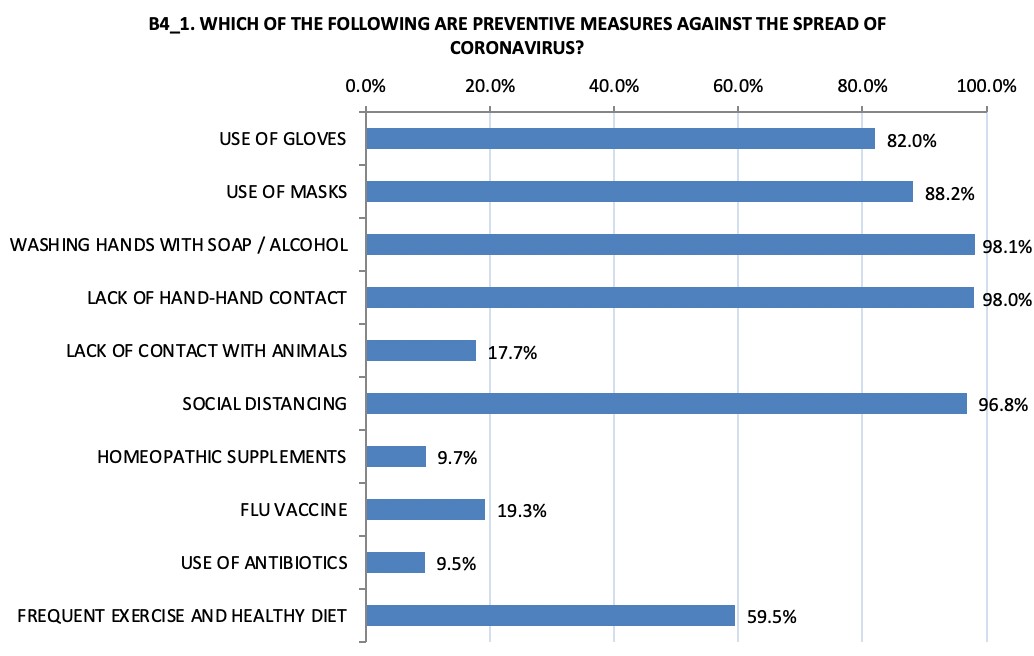
Figure 1. “Which of the following are preventative measures against the spread of coronavirus?”
As for knowledge about how COVID-19 is transmitted, 11.2% of respondents thought that coronavirus could be transmitted through animals or mosquitoes, and 27.6% through food (Fig. 2).
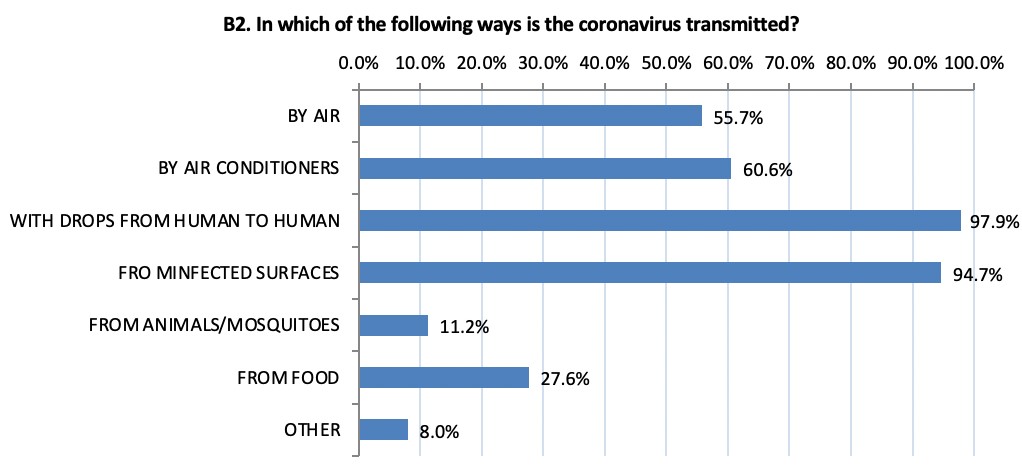
Figure 2. “In which of the following ways is the coronavirus transmitted?”
Αξίζει να σημειωθεί ότι η πλειοψηφία των συμμετεχόντων στην έρευνα ανέφερε πως τα ΜΜΕ είναι η κύρια πηγή πληροφόρησης και ενημέρωσης για την πανδημία, γεγονός το οποίο επιβεβαιώνει ότι αυτά αποτελούν βασικό δίαυλο που επηρεάζει την κοινή γνώμη και θα μπορούσαν να προκαλέσουν αλλαγή συμπεριφοράς.
Attitudes
Participants were asked to respond to COVID-19 knowledge items as either yes or no. Higher scores indicated better knowledge of COVID-19. The majority of participants named that they
The study also looked at the general public’s attitudes and perceptions about coronavirus. The same group, women and those above 24, was more likely to believe that coronavirus was developed by humans in laboratories (Fig. 3).
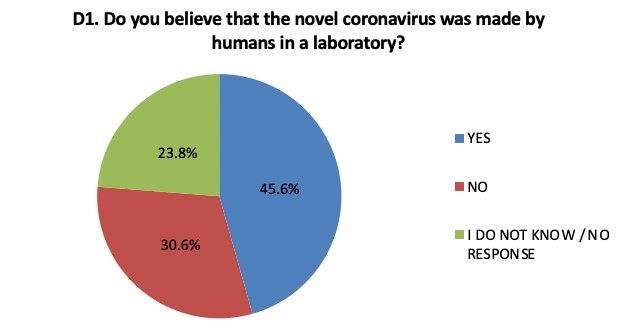
Figure 3. “Do you believe that the novel coronavirus was made by human in the laboratory?”
Practices
Members of a vulnerable group noted that the coronavirus pandemic improved their attitude towards vaccines. Furthermore, those who marked that coronavirus improved their attitude about vaccines named that they were more likely to receive the upcoming flu vaccine and the COVID-19 vaccine, when it becomes available.
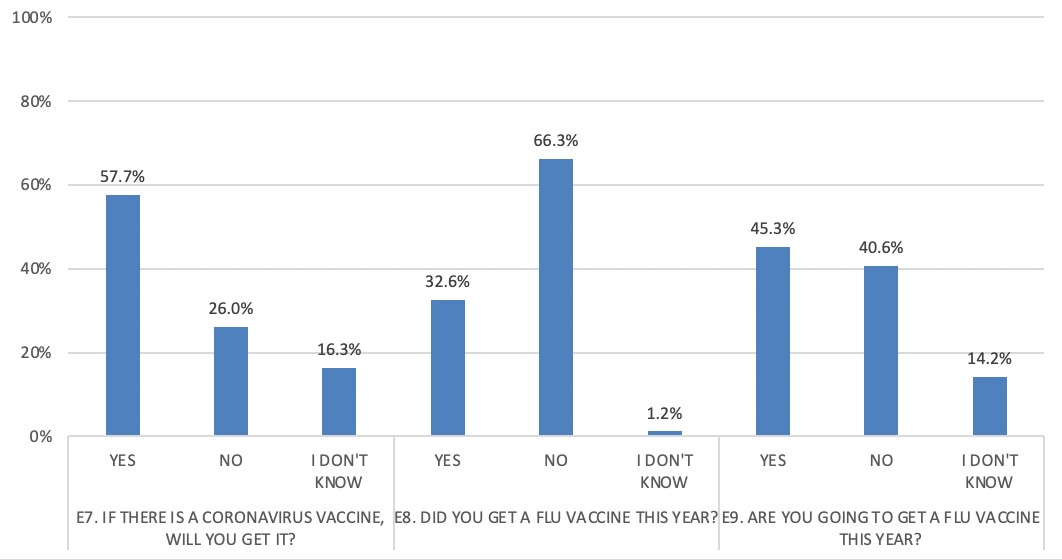
Figure 4. Attitudes towards vaccination
Similarly, those who believed the transmission of coronavirus is “much more” likely than H1N1 were significantly more likely to wash their hands more and state that they would get the upcoming COVID-19 vaccine when available (Fig. 5). Those who beleived that SARS-CoV2 is deadlier (Fig. 6) were similarly more positive towards a COVID-19 vaccine.
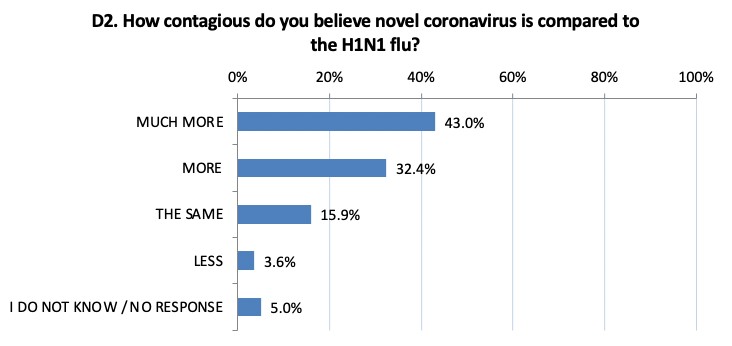
Figure 5. “How contagious do you believe the novel coronavirus is compared to the H1N2 flu?”
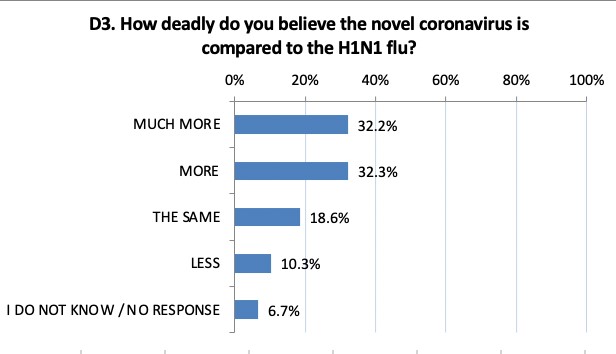
Figure 6. “How deadly do you believe the novel coronavirus is compared to the H1N2 flu?”
Finally, participants were asked about their motivation to enter social isolation. Both the fear of transmitting it to others and the desire to reduce the spread of infection within one’s community were the most popular, while the fear for one’s own life was the least popular among respondents. This highlights an important avenue for improving public adherence to social distancing and quarantine guidelines by emphasizing a respect for the common good.
Overall, this study showed that the general public’s knowledge, attitudes, and practices are influenced by identity markers. It also showed that specific perceptions about transmissible diseases can improve public adherence to control measures, which play a decisive role in reducing infection and controlling the spread of disease. Given the fact that there is neither an effective cure nor a vaccine available for COVID-19, and that there is a second pandemic wave expected, these understandings are extremely valuable in preparing the Greek healthcare system and general population to deal with future public health crises. The COVID-19 pandemic has presented unique, unprecedented challenges for national healthcare systems. The faltering global response - characterized by a lack of preparedness among health care institutions, workers and the wider community - has underscored the importance of investing in public health research. However, it has also provided a unique opportunity for countries to diagnose and treat gaps within their own capacity for disease prevention.





